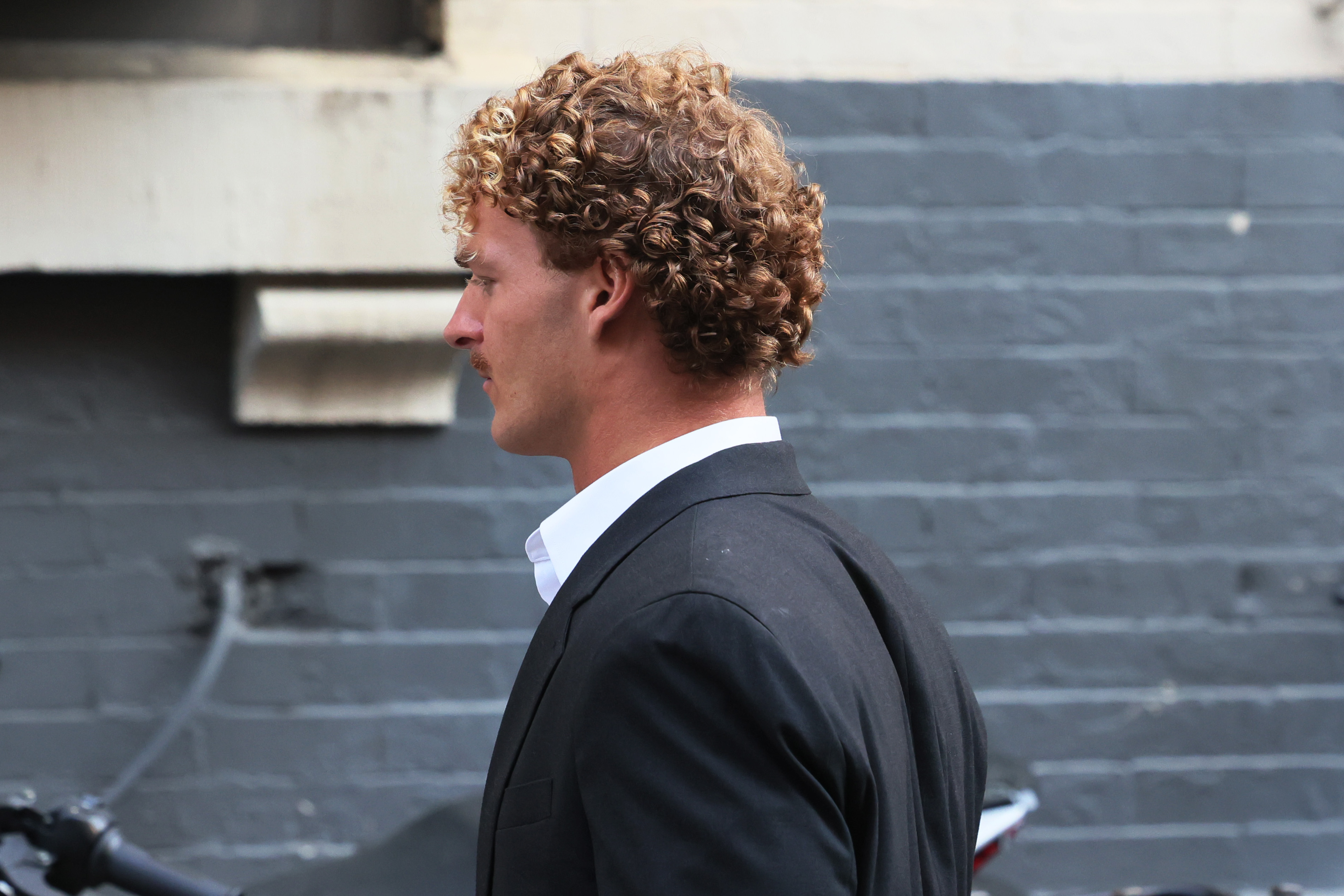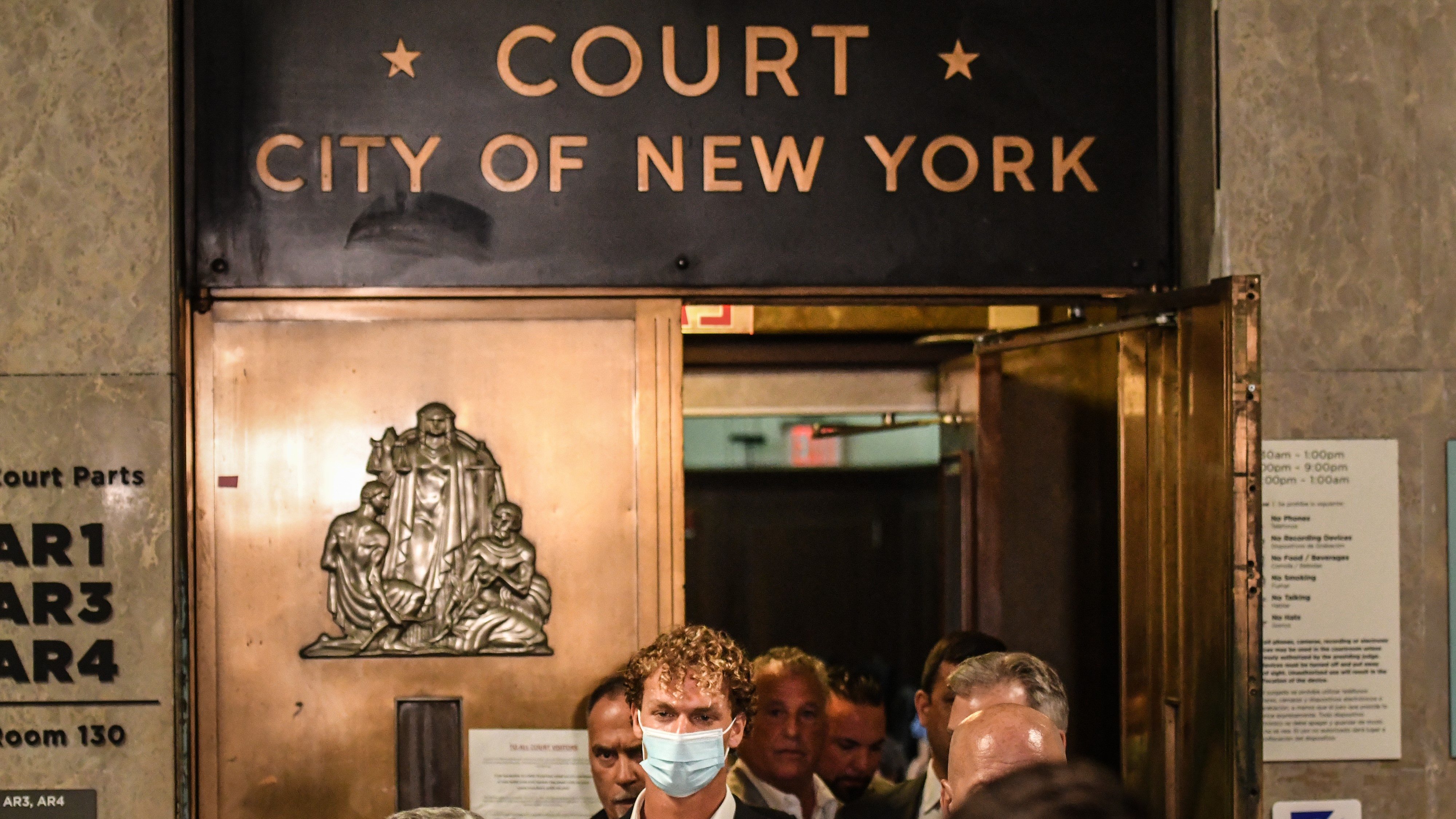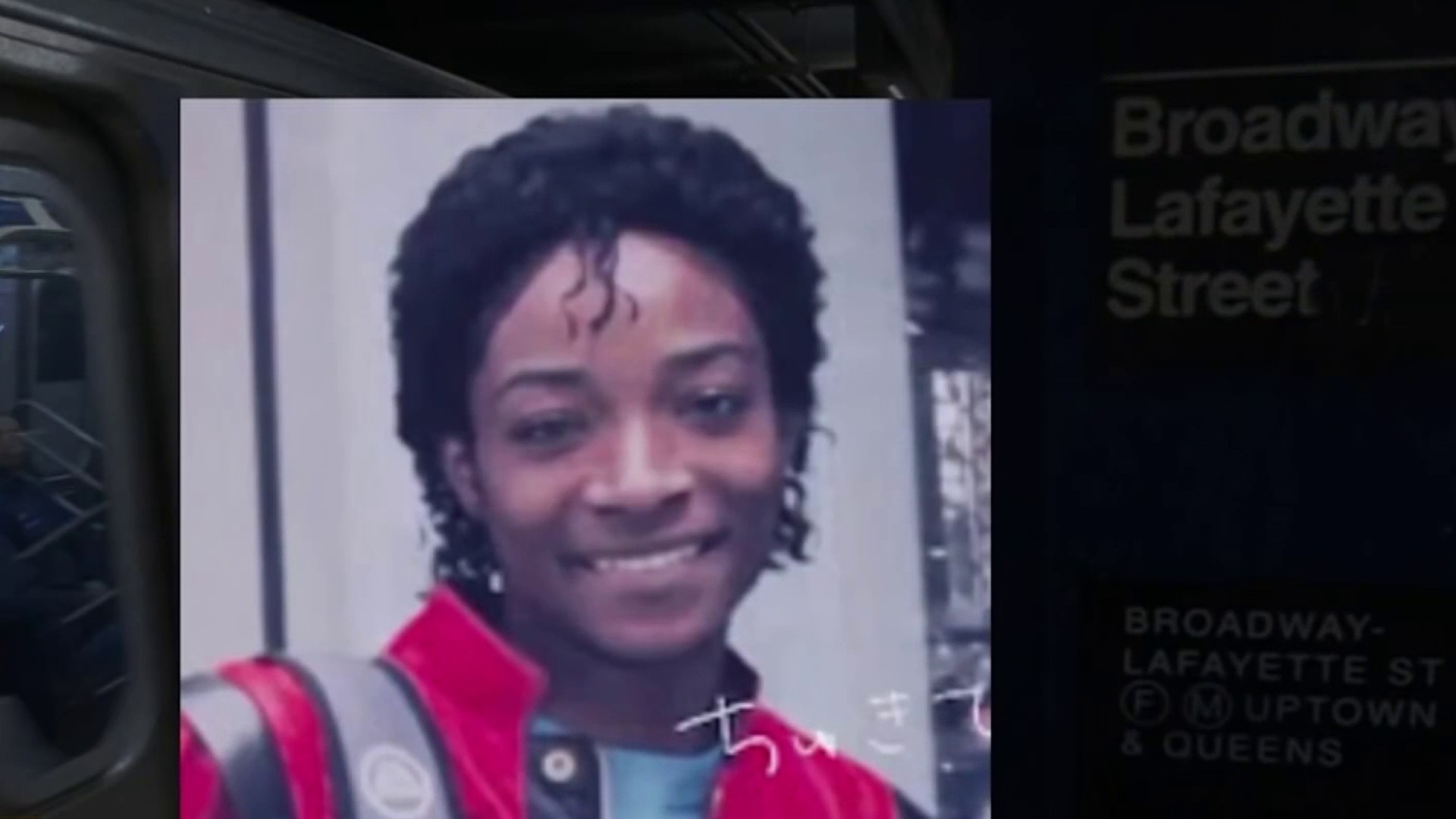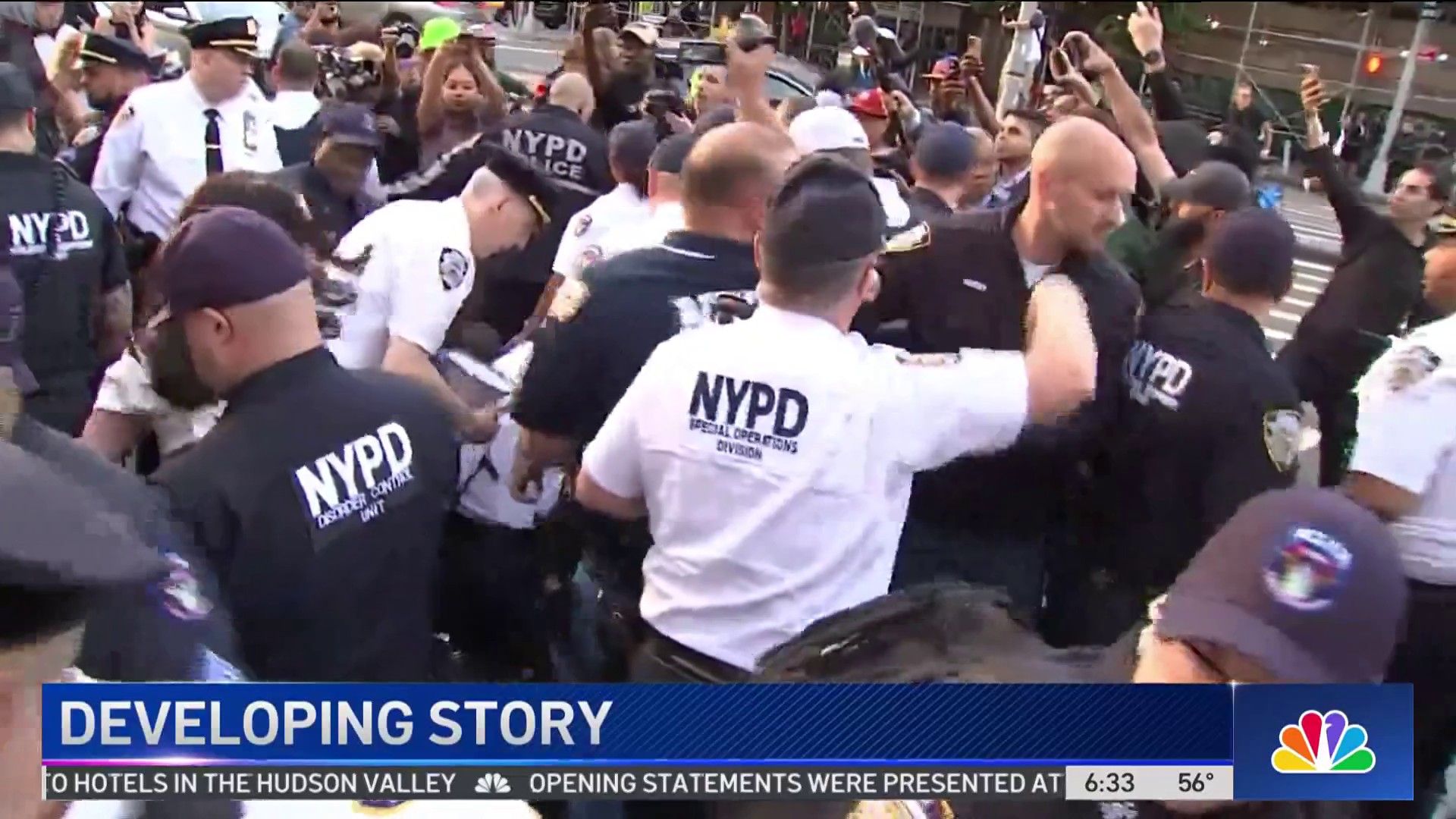What to Know
- 30-year-old Jordan Neely died on a train at the Broadway-Lafayette station in Manhattan on May 1 after allegedly threatening passengers and being put into a chokehold by a rider; that rider, identified as 24-year-old Daniel Penny, was questioned by the NYPD and later released from custody
- The medical examiner's office ruled Neely's death a homicide the next day, which incited a debate around whether the rider's actions were justified defense or vigilantism
- Attorneys for Daniel Penny insist there was no way he "could have foreseen" that his bid to subdue a supposed perceived threat would turn deadly. Neely's family says that amounts to a confession
The family of Jordan Neely, the homeless man who died in a subway rider's chokehold last week, sought to paint the 30-year-old as a promising young man crushed by the murder of his own mother who never got the help he needed from the mental health system -- and who never to deserved to die on the floor of that F train in Daniel Penny's grip.
While witnesses alleged Neely was threatening them on the train that May 1 afternoon, they also said he didn't physically attack anyone before Penny put him in a chokehold. And that, says lawyer Donte Mills, is key.
"You can't kill someone because you thought there was a possibility they could do something to you," Mills said. "Mr. Neely didn’t attack anyone, he didn’t touch anyone, he didn’t hit anyone, but he was choked to death. That can’t stand."
Mills, who is representing the Neely family along with Lennon Edwards shared a photo of Neely as a high school graduate, a tassel dangling from his cap and a smile on his face, like any other eager student.
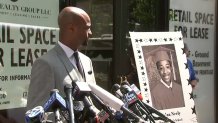
Get Tri-state area news delivered to your inbox.> Sign up for NBC New York's News Headlines newsletter.
"This is who Jordan was, and then tragedy struck," Mills said. "Having his mother taken from him -- and her body dumped in a suitcase on the highway ... it changed Jordan's mentality forever."
Mills acknowledged Neely struggled with demons, and that sometimes, the unfortunate reality of mental illness means families have to take a step back. That doesn't mean Neely lacked family support, Mills stressed. Standing alongside Neely's father, Mills said the 30-year-old always had his family's love and always had a place to live.
He didn't always want the help -- but he still wanted to help others.
Neely was a street performer known for his Michael Jackson impressions. Entertaining others was how he tried to cope with the horror of his early life and loss, Mills said, adding, "Even though he couldn't smile, he made other people smile. That's who Jordan was."
Roger Abrams, a community health representative, said he saw Neely on the subway a week before his death. Neely was disheveled and told people he was hungry and in need of spare change. Abrams said he approached Neely and asked him why he no longer performs.
“I haven’t been feeling well,” Abrams remembered Neely saying.
Mills said Penny deserved to be charged with manslaughter, claiming he acted with indifference toward Neely's life. He also had some words for the other riders on that subway train that day: You could have asked him what was wrong.
Next time a mentally ill person is struggling on a train, Mills says, he hopes another rider will ask that question.
The remarks come hours after Penny, a 24-year-old Marine veteran, surrendered to the Manhattan district attorney's office to face a second-degree manslaughter charge in Neely's May death at the Broadway-Lafayette train station.
Penny's attorneys have insisted he never meant to harm Neely. They describe him as a "decorated Marine veteran" who "stepped in to protect himself and his fellow New Yorkers" and who "risked his own life and safety" in the process. They say he couldn't have known Neely would die of the chokehold, calling it an "unfortunate result."
Neely's family has said the 24-year-old's statements amount to a confession.
The family has been calling for criminal charges since the city medical examiner's office declared the case a homicide a day after Neely's death, and hours after Penny was released from questioning by the NYPD in the case.
Penny's arrest Friday comes amid mounting public pressure over accountability following the medical examiner's determination. It wasn't clear if the Manhattan district attorney's office intended to pursue charges against two other people seen restraining Neely in the widely shared video or if those people had yet been identified.
Witnesses had reported Neely, who had been on a special city watch list, considered a potential risk to himself and others, was aggressive toward other riders on the train. He had been shouting at passengers, witnesses said, yelling that he was hungry and didn't care if he died. They also said Neely hadn't physically attacked anyone before Penny moved to subdue him. Penny was questioned by the NYPD that day and released.
Then came the autopsy findings.
Multiple protests have taken place in Manhattan since Neely's death, with dozens arrested. Protesters again ratcheted up the volume Thursday, after learning of the looming charges. More demonstrations are expected Friday.
More Coverage
Mayor Eric Adams sidestepped a question Thursday about whether Penny's actions should be considered criminal. Earlier this week, the Democrat, who had been accused by some of not weighing in substantially enough, formally addressed Neely's death in a public address. He was careful to toe the line between acknowledging Neely's death, the ensuing racial tensions and systemic outrage over mental health care, without appearing to ascribe any responsibility.
More Coverage
Jennifer Vazquez, Andrew Siff and Tracie Strahan contributed to this report.

